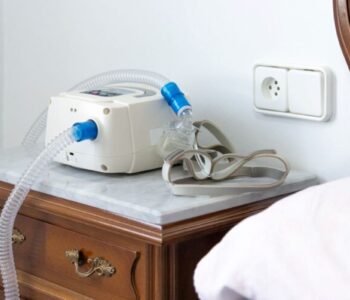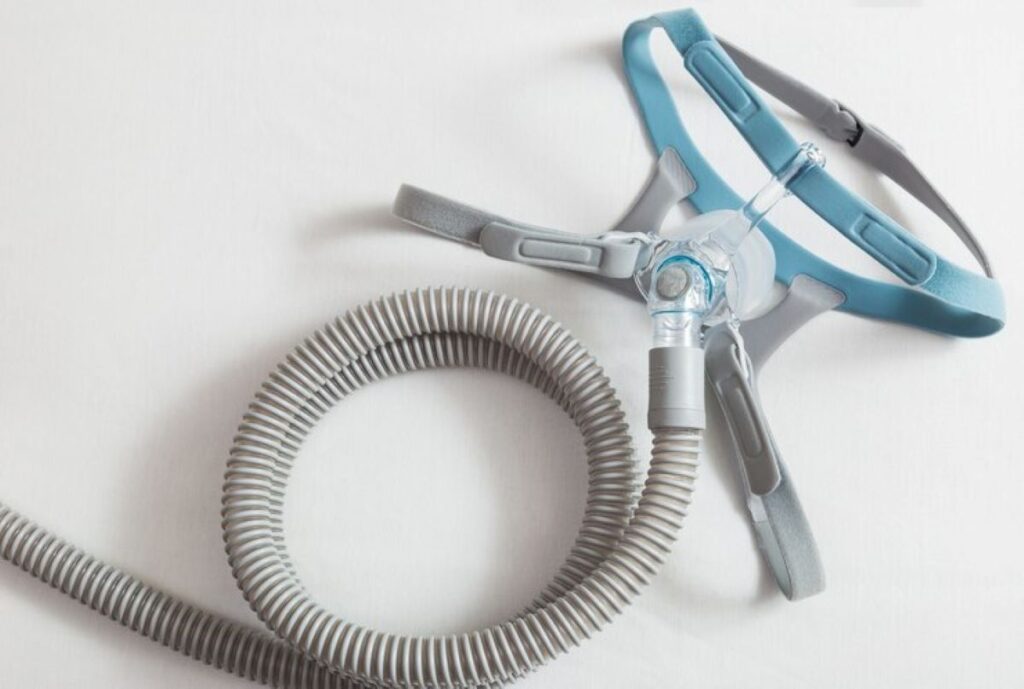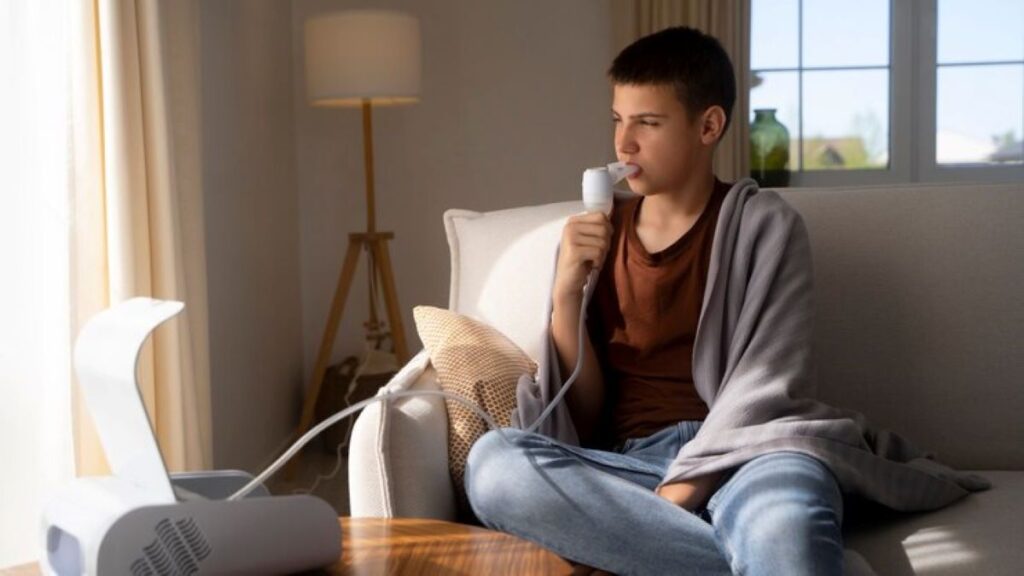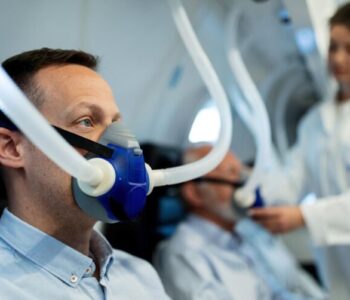 CPAP Machines
CPAP Machines
The Key Differences Between a Sleep Apnea Machine and…
Sleep apnea is a prevalent disorder that can significantly impair an individual’s quality of life. With various treatments available, it is essential to understand the differences between a sleep apnea machine and other therapeutic options. This article delves into the nuances of sleep apnea, treatment modalities, and the considerations involved in making the right choice for patients.
Understanding sleep apnea: A brief overview
Sleep apnea is a potentially serious sleep disorder characterised by interrupted breathing during sleep. Those who suffer from sleep apnea often experience pauses in breathing that can last for several seconds or even minutes. This disruption can lead to a host of problems, both at night and during the day.
What is sleep apnea?
Essentially, sleep apnea occurs when the throat muscles relax excessively during sleep, causing a temporary blockage of the airway. There are several types of sleep apnea, with obstructive sleep apnea being the most common. This condition can affect people of all ages, but certain risk factors such as obesity, age, and genetic predisposition can elevate one’s chances of developing it. Central sleep apnea, which is less common, occurs when the brain fails to send the appropriate signals to the muscles that control breathing. Complex sleep apnea syndrome, also known as treatment-emergent central sleep apnea, is a combination of obstructive and central sleep apnea, making diagnosis and treatment more complex.
For individuals diagnosed with sleep apnea, using CPAP machines online can be an effective treatment. These devices help keep the airway open by providing a continuous stream of air, allowing for better quality sleep and reducing the risk of complications associated with the condition.
The impact of sleep apnea on health
Sleep apnea can have profound consequences on a person’s overall health. Not only does it lead to disrupted sleep patterns, resulting in daytime fatigue and irritability, but it is also associated with more severe health issues, including cardiovascular disease, high blood pressure, and type 2 diabetes. Understanding these impacts is crucial when considering treatment options. Furthermore, individuals with untreated sleep apnea may experience cognitive impairments, such as memory problems and difficulty concentrating, which can affect their performance at work or school. The relationship between sleep apnea and mental health is also noteworthy, as those suffering from this disorder are at a higher risk of developing anxiety and depression, further complicating their overall well-being.
An introduction to sleep apnea machines
One of the most common treatments for sleep apnea is the use of a sleep apnea machine, specifically continuous positive airway pressure (CPAP) devices. These machines deliver a steady stream of air through a mask, which keeps the airway open during sleep.
How does a sleep apnea machine work?
The CPAP machine works by creating a pneumatic splint in the upper airway, which prevents collapse during inhalation and exhalation. It is typically prescribed for those with moderate to severe obstructive sleep apnea. When worn consistently at night, the machine can greatly reduce or eliminate the frequent interruptions in breathing, leading to enhanced sleep quality.
Benefits of using a sleep apnea machine
Among the most notable benefits of using a sleep apnea machine is the significant improvement in sleep quality, which can result in better overall health. Users often report feeling more refreshed and alert during the day since their nighttime disruptions are considerably reduced. Moreover, consistent use of the machine can lead to a decrease in the risk of serious health complications associated with sleep apnea.
In addition to these immediate benefits, long-term use of CPAP machines can also contribute to improved cardiovascular health. Studies have shown that individuals who adhere to CPAP therapy are less likely to develop hypertension, heart disease, and stroke, conditions that are often exacerbated by untreated sleep apnea. Furthermore, the enhanced oxygenation during sleep can promote better metabolic function, potentially aiding in weight management, which is particularly important as obesity is a common risk factor for sleep apnea.
Another advantage of sleep apnea machines is the variety of options available to suit individual needs. Modern CPAP devices come equipped with features such as automatic pressure adjustments, humidifiers to alleviate dryness, and even built-in connectivity to track usage and effectiveness. This level of customization not only enhances comfort but also encourages adherence to treatment, making it easier for users to incorporate the machine into their nightly routine without significant disruption.

Exploring alternative treatments for sleep apnea
While sleep apnea machines can be highly effective, not all patients may feel comfortable using them. Thus, it is crucial to explore alternative treatment options that can also alleviate the symptoms of sleep apnea. Visit https://www.sydney.edu.au/news-opinion/news/2018/03/16/how-the-cpap-machine-beats-deadly-sleep-apnoea.html to get how CPAP machine beats deadly sleep apnoea.
Lifestyle changes as a treatment option
Adopting certain lifestyle changes can yield significant improvements in sleep apnea symptoms. Maintaining a healthy weight, avoiding alcohol and sedative medications before bedtime, and practising good sleep hygiene can all contribute to better sleep quality. Exercise and a balanced diet are also essential in managing sleep apnea and improving general health. Additionally, smoking cessation is particularly important, as tobacco use can exacerbate airway inflammation and contribute to the severity of sleep apnea. Simple changes, such as sleeping on one’s side rather than the back, can also help reduce the frequency of apnoeic episodes, making a noticeable difference in overall sleep quality.
Surgical interventions for sleep apnea
In more severe cases of obstructive sleep apnea, surgical options may be recommended. Procedures can range from tissue removal, to jaw repositioning, or even more complex surgeries aimed at altering the structure of the airway. These interventions are generally considered only after conservative measures have proven inadequate. It is important for patients to discuss the potential risks and benefits of surgery with their healthcare provider, as recovery times can vary and the success of surgery may depend on individual anatomical factors. Furthermore, some patients may require ongoing treatment even after surgery, underscoring the need for a comprehensive approach to managing this condition.
Oral appliances for managing sleep apnea
Oral appliances, which are custom-fitted devices worn in the mouth at night, are another alternative treatment option. These appliances work by repositioning the jaw and tongue to keep the airway open during sleep. They are particularly recommended for those with mild to moderate sleep apnea and can be a viable option for individuals who find CPAP machines uncomfortable. Regular follow-up appointments with a dental professional are essential to ensure the proper fit and function of these devices, as well as to monitor any potential side effects, such as teeth movement or jaw discomfort. Moreover, ongoing research continues to explore the effectiveness of various types of oral appliances, offering hope for improved designs that could enhance comfort and efficacy for patients struggling with sleep apnea.
Comparing sleep apnea machines and other treatments
With various treatments available, a comparison can help individuals make informed decisions about their healthcare. Each treatment option comes with its pros and cons, making it crucial to assess them carefully.
Effectiveness comparison: Sleep apnea machine vs lifestyle changes
While lifestyle changes can be beneficial, they often take time to yield results, and not all individuals will experience the same level of improvement. In contrast, a CPAP machine can provide immediate relief to those suffering from severe sleep apnea. The effectiveness of each option largely depends on the severity of the condition and the individual’s willingness to adhere to the prescribed treatments. Furthermore, integrating lifestyle changes such as weight loss, regular exercise, and avoiding alcohol can not only enhance the effectiveness of a CPAP machine but also contribute to overall health improvements. These changes may lead to a reduction in the severity of sleep apnea symptoms over time, potentially allowing some individuals to transition away from reliance on machines altogether.
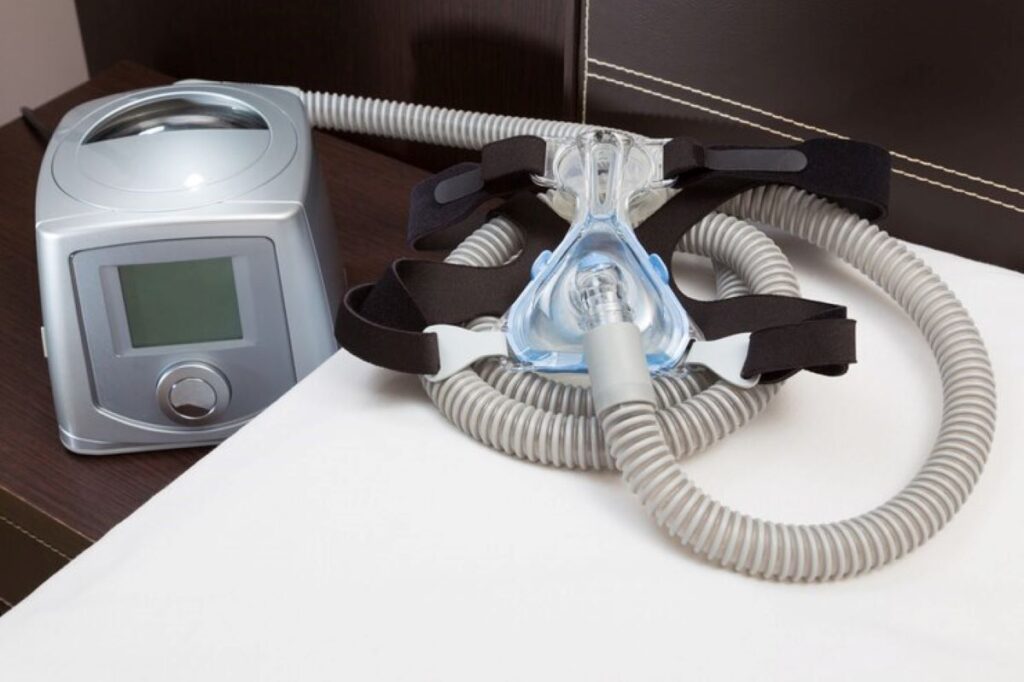
Comparing the risks: Sleep apnea machine vs surgery
Both surgical procedures and the use of a CPAP machine carry certain risks. For instance, surgery may involve complications such as infection or change in appetite. On the other hand, CPAP can cause discomfort and pressure sores if not fitted properly. Weighing these risks is essential for making an informed decision. Additionally, it is worth noting that the recovery time from surgery can vary significantly, often requiring a period of adjustment where the patient may still experience sleep disturbances. In contrast, while CPAP machines can be cumbersome initially, many users find that with time, they adapt to the equipment, leading to improved sleep quality and overall well-being.
Comfort and convenience: Sleep apnea machine vs oral appliances
While oral appliances may offer a more comfortable and portable solution for some, CPAP machines deliver a more consistent airflow, which can be crucial for those with more severe symptoms. The patient’s lifestyle, comfort level, and the severity of their sleep apnea should guide their decision. Moreover, oral appliances can sometimes be less effective for individuals with more complex cases of sleep apnea, as they primarily work by repositioning the jaw to keep the airway open. This method may not provide the same level of airway pressure control that a CPAP machine offers. Additionally, the long-term effectiveness of oral appliances can vary, necessitating regular dental check-ups and adjustments, which may add to the overall cost and commitment required for this treatment option.
See Also : How to Maintain and Clean Your CPAP Machines for Optimal Use
Making the right treatment choice for sleep apnea
Choosing the right treatment for sleep apnea is an essential decision that impacts both health and quality of life. It requires thoughtful consideration of one’s specific circumstances, including health status, lifestyle, and personal preferences.
Factors to consider when choosing a treatment
Several factors can influence the choice of treatment for sleep apnea. These may include the severity of the condition, the presence of coexisting health issues, personal comfort and lifestyle, and financial considerations. Each patient’s needs are unique, and understanding these factors can help guide the decision-making process.
The role of medical advice in treatment selection
Consulting with a healthcare provider is vital when choosing the appropriate treatment for sleep apnea. A specialist can conduct necessary evaluations, provide personalised recommendations, and help weigh the benefits and risks of each option based on the patient’s individual health profile.
In conclusion, understanding the key differences between a sleep apnea machine and other treatments can empower patients to take charge of their health. By exploring options and seeking appropriate medical advice, individuals can find effective treatment solutions that enhance their quality of life.
